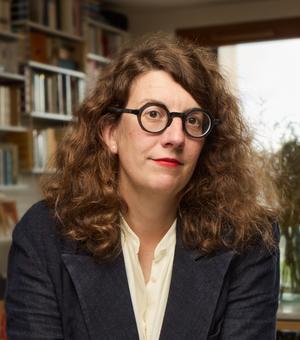Martine Drozdz
Martine Drozdz is an urban and cultural geographer and a CNRS senior researcher at the Maison Française d’Oxford where she is part of the Living Cities research programme led by Dr. Perig Pitrou.
A graduate from Ecole Normale Supérieure Lettres et Sciences Humaines and Sorbonne Université Paris 1 (MA in Human Geography and an Msc in Urban Planning), Martine Drozdz obtained her PhD in Urban Studies from Lyon University in 2014 and worked on the recent history of urban regeneration in the UK, studying the politics of urban change in London from 1970 to 2010.
She explored further the social and material transformations of European Cities by looking at urban verticality - both overground and underground, and took part in Sentient City, an art & science programme funded by the Arts Council and led by artist and photographer Tom Wolseley. She was scientific adviser for the films Vertical Horizon directed by Tom Wolseley, funded by the Leverhulme Trust and for the immersive exhibition XXLH on massive engineering and mega structures held at the National Centre for Science and Technology (Cité des Sciences et de l’Industrie) in Paris.
She is and has been part of multiple research collectives, where she explores different aspects of urban change. For ten years, she has been a member of the French research cluster Urban Futures before being part of the ERC funded programme Urban Rev led by Dr. Ozan Karaman, for which she studied how financialisation has changed urban planning in London, in comparison to Sao Paulo and Istanbul. She was part of CoPolis, an international research-action group whose work supports citizen science and collective action in regeneration areas. She has recently joined the Ville Métabolisme research project hosted at PSL-Paris Sorbonne & Lettres and led by Perig Pitrou to work on emergent directions in urban theory, inspired by the anthropology of life.
During her stay at the MFO, Martine Drozdz aims at looking at the concept of « urban adaptation » as a contested site for defining the future of cities. Her project aims at reflecting on the social and political implications of this new urban rhetoric which has inspired new urban imaginations and development patterns. It takes urban fairs (such as architectural biennales and world’s fairs) as key sites where these urban narratives are elaborated, and Paris and Oxford as case studies.
Along with her academic work, Martine Drozdz has developed an interest in alternative publishing formats. She has been exploring narrative non fiction and visual documentary as resources for circulating scientific knowledge and facilitate the production of citizen science. She has co-directed Nos Lieux communs (Commonplace) a collection of 100+ geographical short stories in the vein of George Perec’s work and (Re)Penser les villes, which combines narrative non fiction with visuals by artist Djohr. She is currently directing The City, an infographic essay to be published for the Homo Graphicus collection of CNRS. With Andrew Harris and Nathaniel Telemmaque, she co-directed Multi-Stories. Part of the Urban Pamphleteer series, it presents a collection of work by artists, photographers, writers, and museum curators aiming at challenging dominant representations of council estates.
Martine Drozdz held teaching and research positions at London School of Economics, University College London, University of Geneva, Ecole Nationale des Ponts et Chaussées, Paris School of Planning, Sorbonne University Paris IV, and Science Po, where she has been lecturing on the material politics of urban adaptation.




